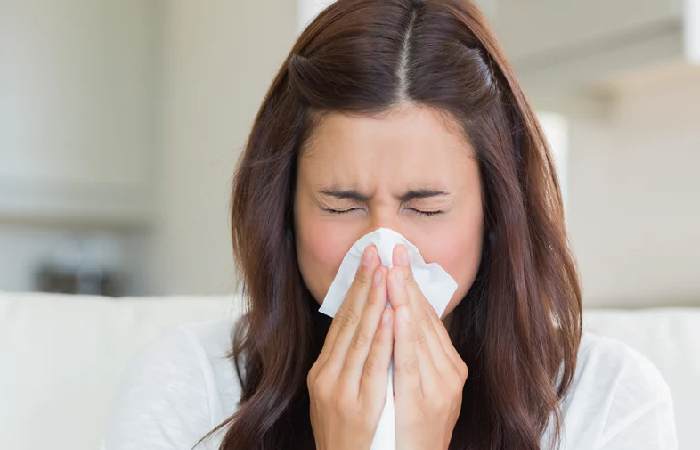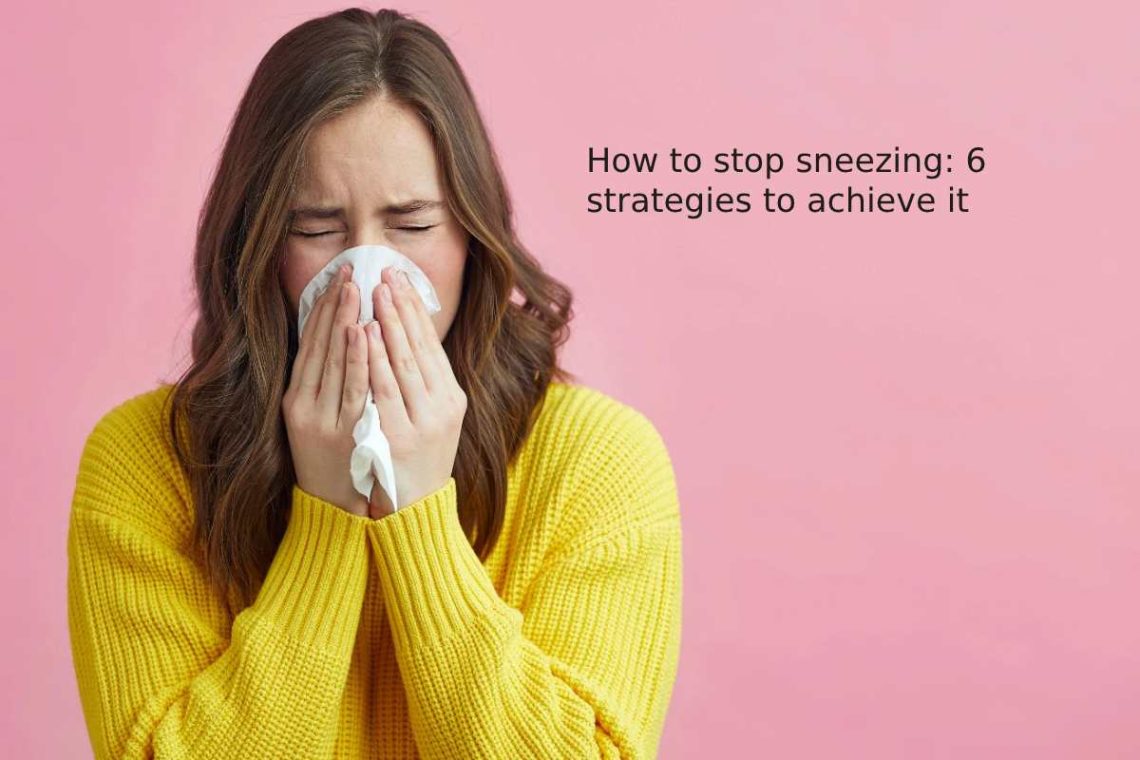Are you searching for ways how to stop sneezing? Here are some simple tips and tricks that can help you stop sneezing anytime, anywhere:
To stop a sneezing attack immediately, you should wash your face and clean your nose by placing a few drops of saline solution, as this will eliminate any dust inside your nose, relieving the discomfort in a few minutes.
In general, constant sneezing and bouts of sneezing upon waking up are caused by allergic factors, and for this reason, if the person suffers from asthma or rhinitis, the possibility of suffering from frequent sneezing increases, which is usually accompanied by watery eyes and a runny nose.
Suppose sneezing is very constant or is accompanied by blood in the mucus. In that case, seeing a pulmonologist or allergist for an evaluation, diagnosis, and the most appropriate treatment is essential.
Strategies to stop sneezing

In addition to the strategies mentioned above, other strategies that can be of great help are:
1. Bite your tongue
A very effective strategy is to focus on biting your tongue when you feel the urge to sneeze. This is a good strategy for times when it might be embarrassing, such as a wedding or an important meeting.
2. Keep the environment clean
People who suffer from any allergy are more likely to have respiratory allergies. For this reason, they should sleep, work, and study in clean places, free of dust, mites, and food remains.
Cleaning the room daily and changing sheets, blankets, and duvets weekly are good strategies to keep the room clean. It is also recommended that the furniture in the house be cleaned with a damp cloth to remove as much dust as possible.
3. Wash the inside of the nose
In a sneezing attack, washing your face helps. Still, putting a few drops of saline solution, seawater, or physiological serum inside your nose is better to eliminate any microorganisms causing the allergic reaction.
4. Drink water
Drinking a glass of water is also an excellent way to control sneezing, as it stimulates other parts of the brain and moistens the throat, which also helps to clear the airways.
5. Take a bath
Taking a hot steamy bath is also a strategy to stop sneezing quickly, but if this is not possible, you can put some water to boil and inhale the steam from the container. This will also help clear your nose, ending the sneezing crisis.
6. Take allergy medications
In the case of asthma or allergic rhinitis, the pulmonologist or allergist may prescribe the use of drugs to control the allergy, such as bronchodilators, corticosteroids or xanthines, such as salbutamol, budesonide, theophylline or mometasone, to control the symptoms and improve the person’s quality of life.
In these cases, medications should be used daily, as they reduce secretions, facilitate air entry, and reduce the chronic inflammation always present in the airways.
What causes constant sneezing?
The leading cause of constant sneezing is allergic reactions that can affect anyone, mainly those with asthma or rhinitis. Some factors that can trigger a sneezing attack are:
- Dust in the place where the person is located, even if it appears clean;
- The scent of perfume in the air;
- Pepper in the air;
- Smell flowers;
- Flu or cold;
- It is being in a closed environment with little ventilation.
If you sneeze with a bad smell, it may indicate, for example, a nasal infection or sinusitis, which is when microorganisms develop inside the airways and end up causing a headache, a feeling of heaviness in the face, and bad breath. Learn the symptoms of sinusitis and how to treat them.
Why you shouldn’t hold back a sneeze
Sneezing is an involuntary body reaction that serves to clear the airways of any microorganisms causing irritation in this area. When trying to hold back a sneeze, the force used can even cause the rupture of small blood vessels in the eyes, perforate the eardrum, problems with the diaphragm, and the tearing of muscles in the throat, which translates into a severe condition that requires surgery as soon as possible.
Most people sneeze only once, but sometimes, they may sneeze 2 to 3 times in a row. An allergic attack may be suspected if you need to sneeze more than the above.
When to see a doctor?
It is advisable to consult an allergist or pulmonologist in the following cases:
- Constant sneezing without having the flu or a cold;
- Waking up and having a sneezing attack more than once a week.
- Sneezing accompanied by blood.
In the latter case, it is common for this to happen when the small blood vessels inside the nose break; however, if blood is present in the mucus or cough, the situation should be treated by a health professional.
Takeaway Key points:
- Identify and Avoid Triggers
- Keep Your Environment Clean
- Use a Saline Nasal Spray
- Stay Hydrated
- Try Antihistamines
- Use a Humidifier
- Practice Good Hygiene
- Avoid Strong Scents
- Control Indoor Allergens
- Blow Your Nose Gently
- Change Your Clothes After Being Outside
- Manage Stress
- Avoid Sudden Temperature Changes
- Take a Warm Shower
- Use Essential Oils
- Eat Spicy Foods
- Use a Neti Pot
- Try Acupressure

